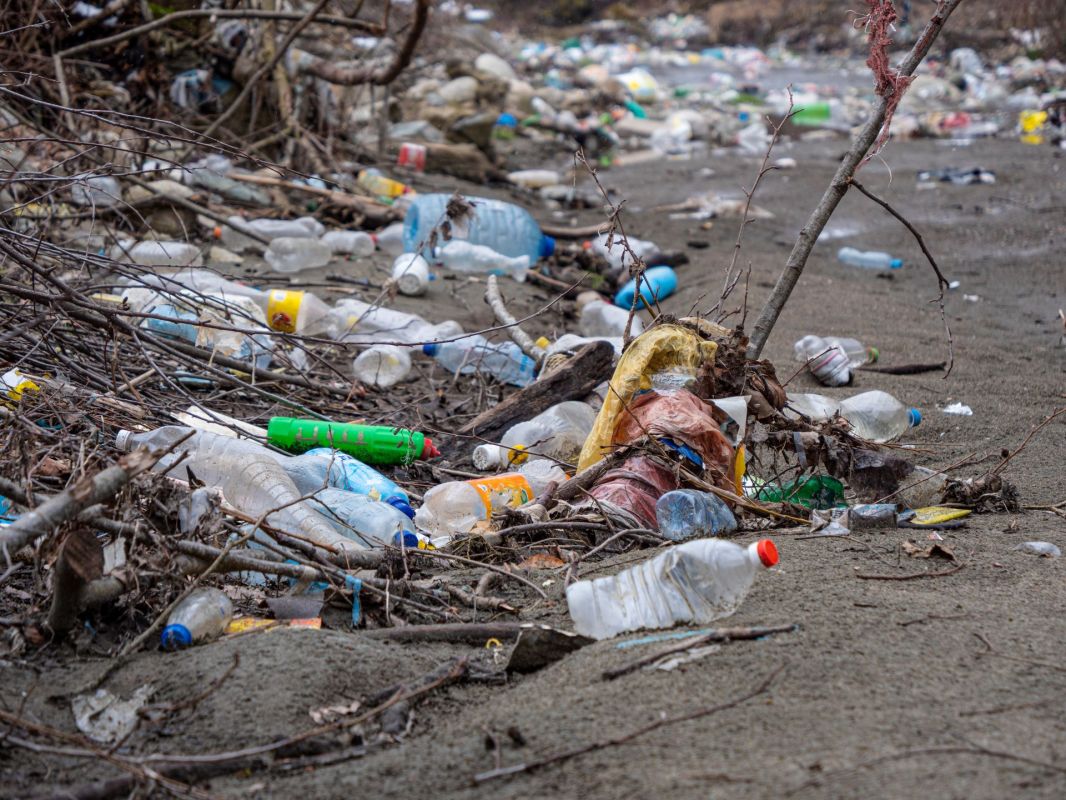A new study suggests that recycling plastic releases many more microplastics than initially believed.
What's happening?
Researchers at the University of Strathclyde in Glasgow conducted a study at a top-tier recycling plant in the United Kingdom. The study suggested that this recycling plant produced as many as 3,233 tons of microplastics every year — roughly equivalent to 13% of all the plastics the plant processed, according to the Guardian.
"I was incredibly shocked," lead researcher Erina Brown told the Guardian. "It's scary because recycling has been designed in order to reduce the problem and to protect the environment. This is a huge problem we're creating."
"For me, it highlights how drastically we need to reduce our plastic consumption and production," Brown said.
Only about 5% of plastic waste is recycled each year in the United States — the country created about 40 million tons of municipal plastic waste in 2021, and a significant portion of it contributes to the microplastics problem when it ends up in bodies of water.
Why is the rise of microplastics important?
Microplastics are minuscule plastic particles that are smaller than 5 millimeters long, and they have infiltrated bodies of water and air around the world. Microplastics can have toxic effects on humans, animals, and plants, particularly if the particles are smaller than 10 microns (about the size of a human red blood cell), as reported in the Guardian.
The study's research shows that although recycling is regarded as an environmentally friendly practice, it still has massive negative consequences for humans, animals, plants, and the planet.
"The findings are disturbing but not surprising," Judith Enck, a former EPA official and anti-plastic lobbyist, told the Guardian. "This one recycling facility, a state-of-the-art facility, demonstrates the serious problem of using plastics. It causes serious problems, even in terms of the infrastructure to recycle plastics. It is a clarion call to use less."
What can be done to help fight microplastics?
The study concluded that adding a water filtration system to recycling plants can drastically reduce microplastic output — at the British facility the researchers studied, adding the filter shrank the plant's microplastics from 13% of total plastic to just 6%.
However, even with filters in place, recycling plants still release a troubling amount of microplastics into our environment, which means the best action we can take is reducing our consumption of plastic by any means necessary.
TCD Picks » Upway Spotlight
💡Upway makes it easy to find discounts of up to 60% on premium e-bike brands
The best way to help combat the problem of microplastics is to purchase fewer plastic products and items that come in plastic packaging, thereby reducing the global demand for plastic. Buying secondhand goods, using reusable water bottles and glass food containers, and avoiding unnecessary plastic packaging at the store can help you reduce your plastic consumption.
Join our free newsletter for cool news and actionable info that makes it easy to help yourself while helping the planet.













